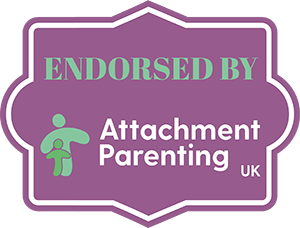
I have been a sports nutritionist for over 15 years now and have worked with a variety of athletes over the years. I have also consulted on programmes that involve getting people doing more physical activity in their day-to-day life and have seen some fabulous transformations.
People who led sedentary lives being inspired to train for big physical challenges have come to me to plan their journey. Sometimes they have been unrealistic in that planning, and sometimes more modest than they needed to be. Whatever the scenario, even in the most ambitious of people I haven’t come across a single person wanting to run a marathon the following day without any prior training. Why is that? Clearly, because even a suggestion of the sort is ludicrous – how can you? The effort required by the body to run 26.2 miles is not something you can take lightly. The adaptations that the body needs to go through in order to sustain this level of activity takes months of training. Your muscles adapt to the sheer repetitive pounding; your blood vessels and other tissues respond by increasing their capacity to do more work; your lungs need to get more efficient, and most, importantly your mind needs to be prepared for the event by being able to assimilate all the physical experience of training and projecting a positive outcome for race day, so that you don’t feel incompetent and experience failure, dejection or even depression when the training gets hard.
People don’t enter marathons without understanding that this will require preparation and months of sacrifice in terms of eating right and training hard.
Yet we expect pregnant mums to ‘run the marathon of their lives’ without any systematic and goal-oriented training. They turn up at labour wards needing to exert the same level of physical exertions (if not more), with much higher levels of mental anxieties and the added emotional rollercoaster that they are perpetually on whilst being pregnant. Is it any surprise then, that we ask for pain relief and other interventions when our bodies are going through the most physically challenging moment of our entire lives? I am not for once suggesting that pain relief doesn’t have its place during childbirth; what I am arguing instead is that perhaps the need for them would drastically reduce if we put into place the preparation that is required to physically birth a human baby.
Epidural anaesthetic use is now at almost at 36% in our country, with almost double that in the US, and even higher in some other countries such as Mexico. This does not merely speak of medical advances in helping women manage their labour, but a generation of mothers now scared of childbirth.

I see these anxious mums on a weekly basis. They have all the right intentions for their birthing journey but very little guidance on how to convert the anxiety of childbirth and fear of unknown into something powerful. We start off with mums wanting to come and relax and reduce anxiety of their high emotional journey of pregnancy. But, somewhere along the way, they get physically strong; the deep squats, the planks, the downward dogs and the balancing postures – they all add up. I start off conversations in the early weeks with terrified women who fear childbirth, but end up with birth stories of wonderful resilience, of grace, of valour and of that true and deep emerging wisdom that comes from knowing yourself, your body and your capabilities.
Being an integral part of this transformation of women has made me a passionate advocate of talking about ‘training for childbirth’; just like we do for marathons, just like we do for climbing the Everest. It bothers me that we can’t see the parallels, and it bothers me even more when people celebrate their race achievements, but we as a society completely ignore and overlook the issues, the obstacles and the need to appreciate what women go through during childbirth.
In fact, it’s only recently we are even talking about physical activity during pregnancy. We do so now, even in 2017, with trepidation. If we are to bring down the rates for C-sections, epidural anesthetic and other pain relief medication use during childbirth, then addition of sensible and appropriate physical and mental preparation should be part of routine antenatal care. Simply saying it’s okay to exercise during pregnancy is like saying it’s okay to train for a marathon. The message needs to be louder, clearer, directed and more goal-oriented. It is not just okay to exercise; it is important to do so to prepare for the ultimate physical event of a woman’s life. Just like any other race, we need to get to the finishing line knowing we did the best we could for ourselves and our babies and, in turn, setting that positive example for our daughters.
 This is the only way we can come out at the other side beaming with self-confidence and that strength of character that defines our demographic group.
This is the only way we can come out at the other side beaming with self-confidence and that strength of character that defines our demographic group.
There is a wealth of information and preparation materials here on MummyYoga. Start your journey of motherhood with the right information, slowly assimilating the positive knowhow of past generations and weave it into your birth story. Your birth belongs to you… your baby…your body and above all how you respond to your unique journey.


